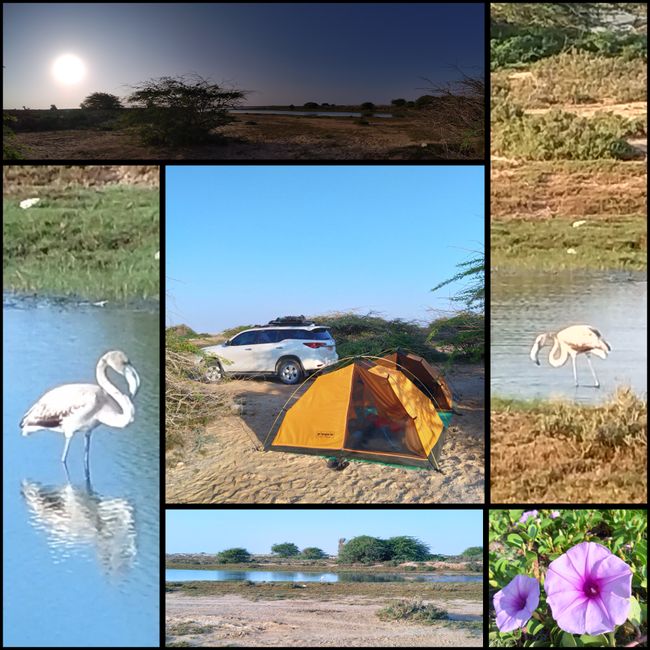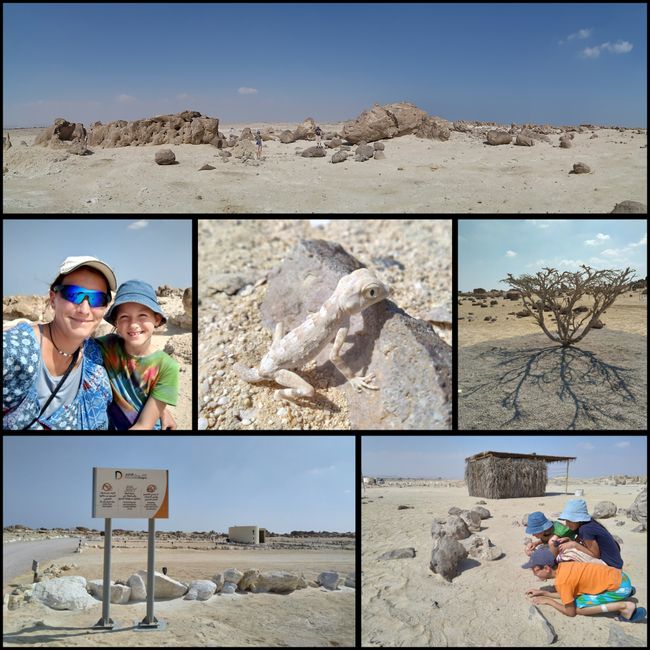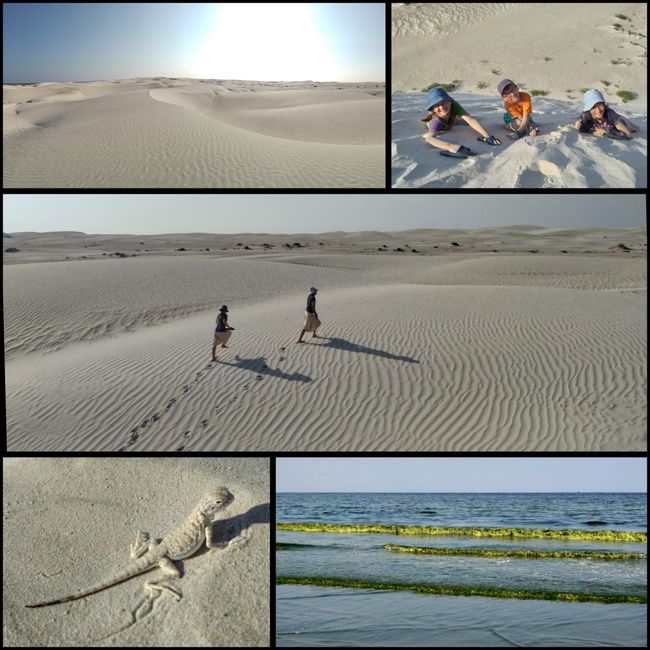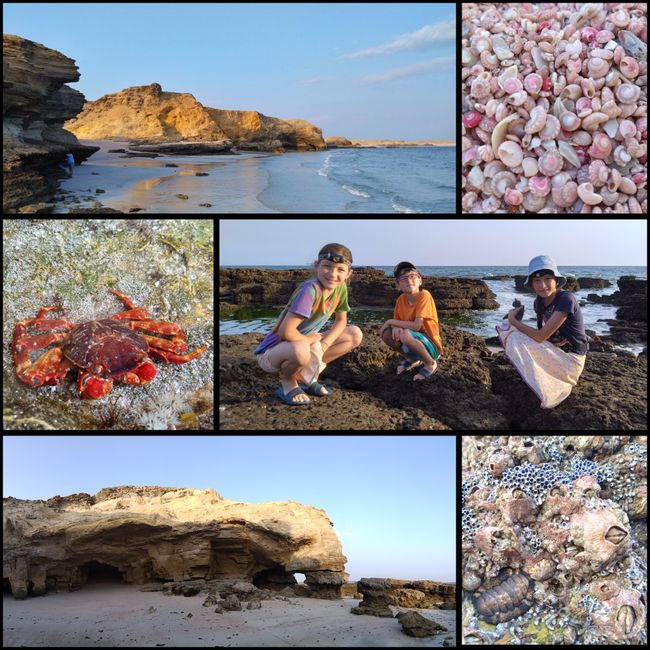28.11. Rock garden, Sugar dunes, Humrat cave v Khalouf
E phatlaladitšwe: 04.12.2023
Ingwadiše go Lengwalo la Ditaba
In the morning we observe flamingos on the lagoon through binoculars from the tent. When packing, the children compete with Ota, who will fold the tent first, so we are packed quickly. The children won, but they have breakfast all the longer, and we still leave faster than yesterday.
We stop in Duqm at a place called "rock garden". It is a group of smaller rocks of different shapes that they surrounded with a fence, made a parking lot and put an Indian there. The entrance is free, a pleasant stretch in the middle of the road, but otherwise we don't really understand it. It would probably be better to stand there in the evening, it will probably be lit up. Before leaving, we go to the toilet in the parking lot, so the Indian goes to turn on the generator to keep the water running. Heavy employment.
We continue further north to the area around Khalouf, where there are white sand dunes "sugar dunes" by the sea. We leave the road in the direction of the salt factory, there is a beaten sandy road, we hope that the road along the coast and the beach will be passable. At the salt factory there is a direction sign in Arabic, Ota takes a picture of it and finds out with the help of a translator that it says Khalouf, we interpret it to mean that it is passable. In addition, it is low tide in an hour, which is an ideal condition for a trip along the beach. We pass the salt factory and continue to the sea, the road goes along the beach and we look at the completely green waves of the sea, we go to look closer and we cannot recognize what makes the water so green. Snow-white sugar dunes begin to rise on the other side of the road. We go for a walk to them and the children run wild in the sand so much that we have to shower them before the next trip. We continue along the beaten sand between two hills to the next beach. Next, we drive 5 km straight along the beach and stay as far away from the sea as possible to be safe.
We stop at another small beach behind the cliff, which is littered with miniature pink shells of small snails. We are going to explore the sea cave - Humrat cave, which is passable only at low tide. There are dozens of large crabs, we look at them until we find and scare them all, and also explore other hatches and caves. Apart from the ubiquitous garbage and one pensive Omani, we are alone here.
We decide to use the evening to cross north to Ibra. In Khalouf, we refill the water and have a shawarma (chicken kebab wrapped in a flatbread). We set off in the dark and after less than 300 km we pitch our tents among dry acacia trees.
Ingwadiše go Lengwalo la Ditaba
Karabo
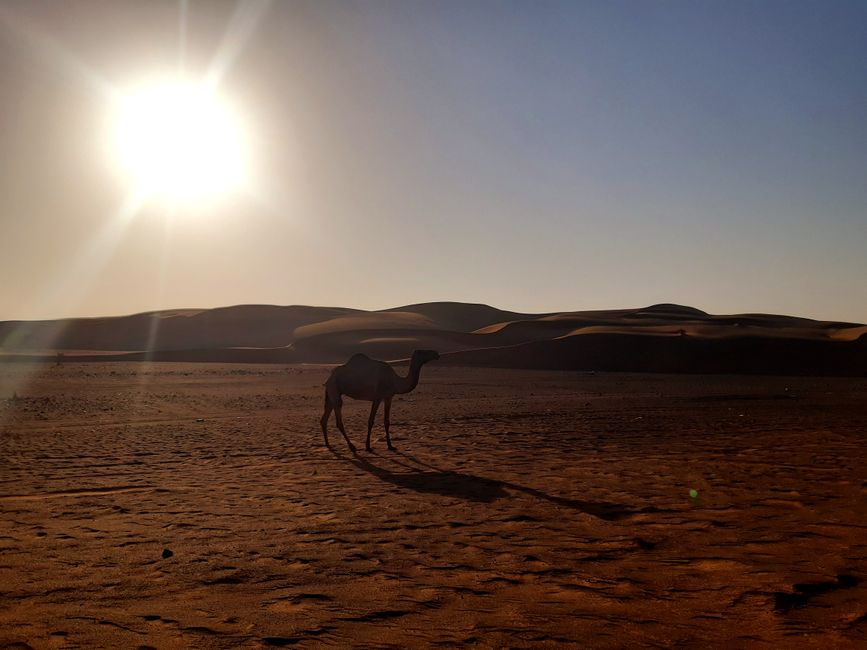
Dipego tša maeto Oman


